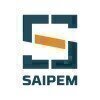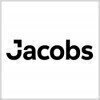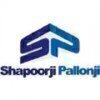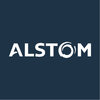
Filter interviews by
Gulf Spic General Trading & Contracting Company Rotating Equipment Engineer Interview Questions and Answers
Gulf Spic General Trading & Contracting Company Rotating Equipment Engineer Interview Experiences
1 interview found
I applied via Walk-in and was interviewed before Dec 2021. There were 2 interview rounds.

(2 Questions)
- Q1. Tell about your self
- Ans.
I am a Rotating Equipment Engineer with expertise in designing and maintaining rotating machinery.
I have a Bachelor's degree in Mechanical Engineering.
I have 5 years of experience in the oil and gas industry.
I specialize in centrifugal pumps and gas turbines.
I have successfully led projects to optimize equipment performance and reduce downtime.
I am proficient in using software like AutoCAD and SolidWorks for equipment ...
- Q2. Asking question in documents
Interview Preparation Tips
Know the international standards of all type of pumps and compressors
Top trending discussions






Interview questions from similar companies

Senior Engineer Interview Questions & Answers
Megha Engineering & Infrastructuresposted on 23 Oct 2020
I applied via Recruitment Consultant and was interviewed in Apr 2020. There were 3 interview rounds.
Interview Questionnaire
1 Question
- Q1. About HT/LT,Motor/Feeder & Substation Errection & Commission.
Interview Preparation Tips

Interview Questionnaire
1 Question
- Q1. Hard core techanical

Senior Engineer Interview Questions & Answers
Megha Engineering & Infrastructuresposted on 30 Dec 2020
I applied via Naukri.com and was interviewed in Feb 2021. There were 2 interview rounds.
Interview Questionnaire
2 Questions
- Q1. Welding, qc, daily activities
- Q2. Ndt test, valve industry
Interview Preparation Tips

Senior Engineer Interview Questions & Answers
Megha Engineering & Infrastructuresposted on 14 Jul 2017
I appeared for an interview before Jul 2016.
Interview Preparation Tips
Duration: 4 hours 5 minutes
Round: Test
Duration: 2 hours 5 minutes

Senior Engineer Interview Questions & Answers
Megha Engineering & Infrastructuresposted on 17 Feb 2021
I applied via Walk-in and was interviewed in Aug 2020. There was 1 interview round.
Interview Questionnaire
1 Question
- Q1. ELSR MEANS
Interview Preparation Tips

I applied via Naukri.com and was interviewed before Nov 2019. There was 1 interview round.
Interview Questionnaire
4 Questions
- Q1. Basics related to piperack design
- Q2. Design parameters for steel structure
- Ans.
Design parameters for steel structure
Load capacity and distribution
Material strength and durability
Environmental factors such as wind and seismic activity
Connection details and joint design
Fire resistance and protection measures
- Q3. Number of years exposure to staad
- Ans.
I have 5 years of exposure to STAAD software.
I have used STAAD for various structural analysis and design projects.
I am proficient in using STAAD for modeling, analysis, and design of steel and concrete structures.
I have experience in using STAAD for seismic analysis and design of structures.
I have also used STAAD for foundation design and analysis.
I keep myself updated with the latest versions and features of STAAD so...
- Q4. Grating design and deflection limits
Interview Preparation Tips

I applied via Referral and was interviewed before Jan 2021. There were 5 interview rounds.
Interview Questionnaire
10 Questions
- Q1. What do you want to do in 5 years
- Q2. What is glass
- Ans.
Glass is a solid, transparent material made by heating a mixture of silica and other materials.
Glass is a non-crystalline, amorphous solid
It is made by heating a mixture of silica, soda ash, and lime
It can be molded into various shapes and sizes
It is used in windows, mirrors, lenses, and containers
Different types of glass include tempered, laminated, and stained glass
- Q3. What is graphene
- Ans.
Graphene is a thin layer of pure carbon arranged in a hexagonal lattice.
It is the thinnest material known to man
It is a good conductor of electricity and heat
It is incredibly strong and flexible
It has potential applications in electronics, energy, and medicine
- Q4. What is your expectations
- Q5. What do you want to do in 5 years
- Ans.
In five years, I envision myself leading innovative projects, mentoring junior engineers, and contributing to strategic decisions.
Leadership Role: I aim to take on a leadership position where I can guide teams in developing cutting-edge technologies, similar to how I led a project that improved system efficiency by 30%.
Mentorship: I want to mentor junior engineers, sharing knowledge and best practices, much like how I ...
- Q6. What is glass
- Ans.
Glass is a solid, transparent material made by heating a mixture of silica and other materials.
Glass is an amorphous solid, meaning it has no long-range order in its atomic structure.
It is commonly used in windows, mirrors, lenses, and containers.
Glass can be colored or made into different shapes by adding various chemicals or using different manufacturing techniques.
It can also be tempered or laminated for increased s...
- Q7. What is your expectations
- Ans.
As a Senior Engineer, I expect growth opportunities, collaborative teamwork, and a focus on innovative problem-solving.
Career Development: I look for opportunities to enhance my skills through training and mentorship, such as attending workshops or conferences.
Collaborative Environment: I value working in teams where knowledge sharing is encouraged, like participating in code reviews or pair programming.
Innovative Proj...
- Q8. What do you want to do in 5 years
- Ans.
In five years, I aim to lead innovative projects, mentor junior engineers, and contribute to strategic technical decisions.
Leadership Role: I aspire to take on a leadership position where I can guide teams in developing cutting-edge solutions, similar to how I led a project that improved system efficiency by 30%.
Mentorship: I want to mentor junior engineers, sharing knowledge and best practices, much like how I was men...
- Q9. What is glass
- Ans.
Glass is a solid, transparent material made by heating a mixture of silica and other materials.
Glass is a non-crystalline, amorphous solid
It is made by heating a mixture of silica, soda ash, and lime
It can be molded into various shapes and sizes
It is used in windows, mirrors, lenses, and containers
Different types of glass include tempered, laminated, and stained glass
- Q10. What is your expectations
- Ans.
As a Senior Engineer, I expect growth opportunities, collaboration, and a culture of innovation to drive impactful projects.
Career Development: I look for opportunities to enhance my skills through training and mentorship, such as attending industry conferences.
Collaborative Environment: I value teamwork and open communication, where ideas can be shared freely, like in regular brainstorming sessions.
Impactful Projects:...
Interview Preparation Tips

Senior Engineer Interview Questions & Answers
Jacobs Engineering Groupposted on 23 Aug 2023
(5 Questions)
- Q1. About current projects. And more about seismic/ wind loads
- Q2. How to perform RSM method ?
- Ans.
Response Surface Methodology (RSM) is a statistical technique used to model and analyze the relationship between a response variable and multiple input variables.
Design a set of experiments based on a factorial design
Collect data from the experiments
Fit a regression model to the data
Analyze the model to determine optimal input settings for the response variable
- Q3. Soil test report
- Q4. Foundation uplift
- Q5. Connection design

I applied via Walk-in and was interviewed before Sep 2022. There were 2 interview rounds.

(2 Questions)
- Q1. Which column takes more load short or Long Column
- Ans.
Long columns generally take more load due to their greater height and material distribution, affecting structural integrity.
Long columns are more susceptible to buckling under axial loads compared to short columns.
Short columns can carry higher loads due to their stiffness and reduced slenderness ratio.
For example, a 10-foot tall column may buckle under a lower load than a 3-foot tall column.
Material properties and loa...
- Q2. What kind of pressures will impose on the water tank walls during seismic
- Ans.
Seismic activity imposes dynamic pressures on water tank walls, affecting structural integrity and stability.
Increased hydrostatic pressure due to water movement during seismic events.
Dynamic forces from ground shaking can lead to sloshing of water, exerting lateral pressures.
Tension and compression forces on tank walls can cause structural failure if not designed to withstand seismic loads.
Example: A tank filled to ca...
Interview Preparation Tips
Gulf Spic General Trading & Contracting Company Interview FAQs
Tell us how to improve this page.
Gulf Spic General Trading & Contracting Company Interviews By Designations
- Gulf Spic General Trading & Contracting Company Draughtsman Mechanical Interview Questions
- Gulf Spic General Trading & Contracting Company Electrical Draftsman Interview Questions
- Gulf Spic General Trading & Contracting Company Electrical Engineer Interview Questions
- Gulf Spic General Trading & Contracting Company Safety Supervisor Interview Questions
- Gulf Spic General Trading & Contracting Company HSE Officer Interview Questions
- Gulf Spic General Trading & Contracting Company Project Engineer Mechanical Interview Questions
- Gulf Spic General Trading & Contracting Company Rotating Equipment Engineer Interview Questions
Interview Questions for Popular Designations
- Senior Engineer Interview Questions
- Production Engineer Interview Questions
- Junior Engineer Interview Questions
- Electrical Engineer Interview Questions
- Maintenance Engineer Interview Questions
- Assistant Engineer Interview Questions
- Executive Engineer Interview Questions
- Senior Electrical Engineer Interview Questions
- Show more
Interview Questions from Similar Companies
|
Piping Designer
27
salaries
| ₹5.2 L/yr - ₹12 L/yr |
|
Piping Design Engineer
18
salaries
| ₹12.3 L/yr - ₹22.9 L/yr |
|
Electrical Designer
12
salaries
| ₹7.8 L/yr - ₹13.5 L/yr |
|
Piping Draughtsman
11
salaries
| ₹6 L/yr - ₹11.4 L/yr |
|
Electrical Design Engineer
10
salaries
| ₹6.6 L/yr - ₹18 L/yr |

Megha Engineering & Infrastructures

Shapoorji Pallonji Group

Alstom Transportation

Tata Technologies
- Home >
- Interviews >
- Gulf Spic General Trading & Contracting Company Interview Questions










